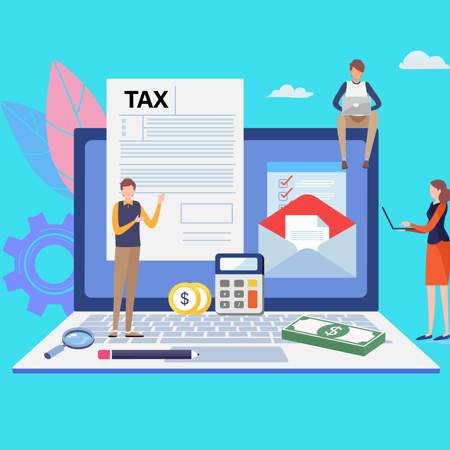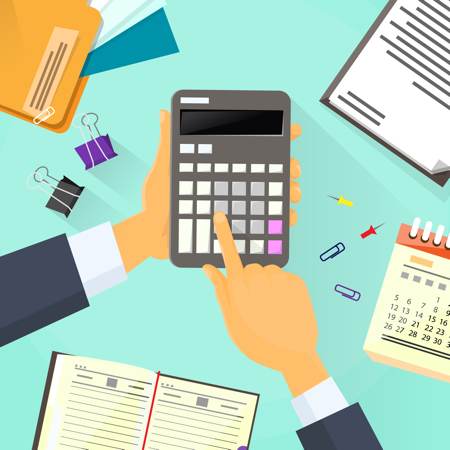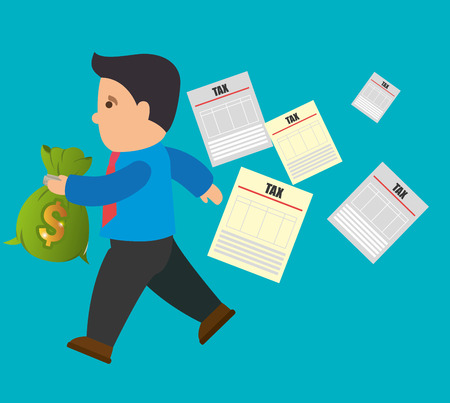Tax saving tips to maximise your start-up’s potential
 When you’re first starting out in business, it’s essential that you focus as much of your energy as possible on maximising your start-up’s potential. Your time is valuable, and there are better places to spend it than on time-consuming tax issues.
When you’re first starting out in business, it’s essential that you focus as much of your energy as possible on maximising your start-up’s potential. Your time is valuable, and there are better places to spend it than on time-consuming tax issues.
This is why hiring a specialist tax accountant from Tax Agility is so important – we can ensure you’re saving as much money and time as possible, and we also provide you with valuable business information gained from years of experience. Here are some tax-saving tips you can apply to your business.
Know your industry
Knowing your industry inside out is not just good for business, it can also save you money on your taxes. If you keep yourself engaged in what’s going on in your industry, you’ll be the first to know of any new reliefs or allowances approved by HM Revenue and Customs (HMRC). For example, if you’re in the construction industry, knowing how the Construction Industry Scheme (CIS) works is beneficial. If in doubt, check with an accountant specialises in your industry.
Check if you’re eligible for Seed Enterprise Investment Scheme (SEIS)
SEIS is a scheme that offers tax relief to those individual investors that buy shares in new companies. Though you’ll have to give a small chunk of your start-up away in exchange for their investment(s), it can’t hurt to check if you’re eligible. You can receive up to £150,000 of tax-free investment, but unless your company follows the rules laid out on the government web page your investors will not be able to claim the tax relief.
Choose the right business structure
You can start saving on your tax bill in the first month of your start-up’s life if you choose a business structure that’s appropriate to your start-up. Certain structures can allow you to adjust your earnings to avoid certain taxes – for example, if you set yourself up as the director of a limited company, then you can pay yourself in dividends, which you do not have to pay National Insurance Contributions on.
The Making Tax Digital (MTD) scheme is also fast approaching. From 1 April 2019, VAT-registered businesses with a taxable turnover above the VAT threshold of £85,000 are required to use the MTD service to keep records digitally, plus also use software to submit their VAT returns from 1 April 2019. If you haven’t made the switch and chosen a system that can integrate with online accounting easily, then it’s time to talk to an accountant with experience in cloud accounting to find out more.
Work from home
One way to maximise your start-up’s potential when you’re just starting out is to work from home, as you can save money on expensive office rental fees. At the moment, HMRC allows you to claim £4 a week to cover fixed expenses. In addition, you can also claim tax relief for other expenses like telephone calls and electricity for your work area. However, it must be said that you cannot claim things that are used for both private and business, such as rent or broadband access. To find out more about how much household expenses can be reimbursed, visit this EIM01476 page.
Hire an accountant
It can be tempting to try and save money by doing your taxes yourself. However tax laws are complex, and you need a professional to ensure you’re saving as much as possible, within the permitted law. The sooner you hire an accountant, the sooner they can get to work ensuring you’ll only be paying the tax you’re liable to pay.
Chartered accountants for small businesses
At Tax Agility, we are chartered accountants for small businesses including start-ups. One area we specialise in is business tax for small businesses, where we can show you which tax reliefs you can apply for and any expenses you can claim, potentially saving you thousands of pounds worth of tax.
If you’d like to know more about tax saving tips for your start-ups or small business, contact us today on 020 8108 0090 or get in touch with us via our contact page to arrange a complimentary, no obligation meeting.
If you liked this article, you might also like:
What tax exemptions apply for Christmas gifts, bonuses, and parties?
 Christmas is just around the corner, which means it’s time for an annual refresher on the tax exemptions surrounding Christmas gifts, bonuses, and office Christmas parties.
Christmas is just around the corner, which means it’s time for an annual refresher on the tax exemptions surrounding Christmas gifts, bonuses, and office Christmas parties.
Though these rules apply to all businesses, in this article we are going to focus on how small and medium-sized enterprise (SME) owners should think about these employee benefits in order to maximise the value (and fun) for your employees. Here’s what you need to know to keep your tax liabilities to a minimum.
Christmas gifts
You do not pay tax on Christmas gifts that are considered to be ‘trivial benefits’. In order to be a trivial benefit, a benefit must cost £50 or less and cannot be a reward for their work or performance. It also cannot be cash or a cash voucher.
Gifts that are not trivial are taxed under Class 1A National Insurance, and if the gift can be resold or exchanged for cash then it may be taxed as earnings.
Please note that if your company provides trivial benefits as part of a salary sacrifice arrangement, then you will report it on form P11D on the salary given up and the worth of the trivial benefits. These rules apply to arrangements made after 6 April 2017.
If you’re a director of a ‘close’ company, meaning a limited company run by five or fewer shareholders, then you cannot receive trivial benefits worth more than £300 in a tax year.
Christmas bonuses
Cash bonuses are always going to be taxed, regardless of their size. Any cash gift you give to an employee will count towards their standard earnings and will be taxable under PAYE tax and Class 1 National Insurance Contributions, along with their other earnings.
You may also give tangible and intangible items to your employees as a Christmas bonus, but you will need to declare it on your end-of-year tax form (form P11D) and pay class 1A National Insurance Contributions on the value of the benefit.
Christmas parties
In order to ensure you keep your tax liabilities to a minimum when hosting a Christmas party for your employees, you’ll need to keep in mind:
- The party must be an annual event, not just a rare occurrence.
- The total cost of all parties you host in a given tax year must not exceed £150 per head, including VAT.
- You can either allocate £150 per head for a grand Christmas party or split the amount across a few parties in a given tax year.
- The amount £150 per head can include food & drink, travel expense, and other party-related items.
- If your annual parties do exceed £150 per head, your employees will have to pay tax on the entire amount, not just the value over £150.
- You must invite every employee working for your business or, for a larger SME, every employee working at a particular location.
Experienced tax accountants
Tax is a complex issue but as professional tax accounts, we’re here to help and provide the most tax efficient way to run your business, from Christmas party allowance to taking the money out of your small business, among other tax-related issues.
Contact us today on 020 8108 0090, or get in touch with us via our contact page to arrange a complimentary, no obligation meeting.
If you found this useful, you might also like:
- Tax guide for Christmas parties and Christmas gifts
- Are you aware of the tax rules for corporate gifts?
Xero Accounting: Update your business
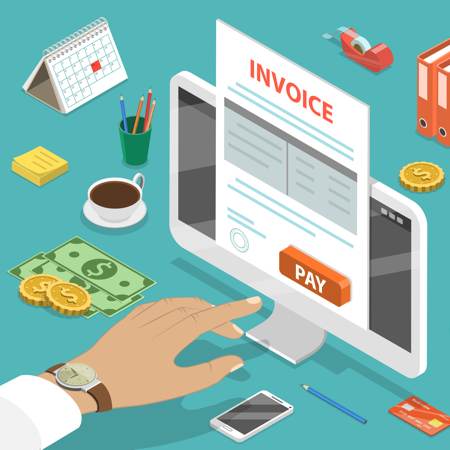
At Tax Agility, we understand the importance of proper finance management better than anyone. With online accounting soon to become mandatory due to the Making Tax Digital scheme (MTD), there’s never been a better time to update your account management.
Xero – the right choice
Xero Accounting gives you access to timely, accurate and relevant information at a low monthly cost. It’s an internationally renowned, multi-award winning piece of software. Xero is simple, powerful and compatible with hundreds of third-party apps like PayPal, meaning it integrates seamlessly into nearly every business model. It’s also one of the few online pieces of software that is government approved as fully compatible with MTD.
The advantages of Xero
Built for small business owners – Xero simplifies business accounting for small business owners. You don't have to know any accounting jargon to understand your finances.
Online hosting – As all of your data are stored in the cloud, you can access it from anywhere in the world - you only need an Internet connection. You don't need to worry about backing up your files either, as they will be stored on secure servers with multiple redundancies in place. In addition, there is no need to manually apply software upgrades since the vendor takes care of this for you.
Electronic bank feeds – Xero can be configured to receive your bank statement data automatically, cutting down on administration time. It also presents your data as an electronic bank feed, bringing all of your information together on one screen - no more endless searching through bank statements and invoices.
Automated transactions – Most businesses have recurring, fixed-price transactions, and these repetitive processes are easy to automate. Xero excels at managing repeat payments, plus it also records them for your convenience, letting you view your payments quickly and easily.
Simplified client invoicing – Keeping track of all of your business' invoicing can be hard, and forgotten invoices can hamper your growth if you don't recover money that is owed to you. Xero allows you to set invoice reminders and send your clients emails reminding them about unpaid invoices, so you don't have to manage them yourself.
Flexible reporting – Xero lets you view and share reports and budgets in real-time, so you don't have to wait until the end of the month. It also allows you to condense years of paperwork into simple graphs that plot the shape of your business, how it’s growing and what direction you’re going in. This information is critical in making informed financial decisions about your business. Our accountants can help you make sense of the reports, so you can understand what areas need work and whether your business is on the right track to financial growth.
Easy collaboration – A major benefit of cloud accounting is that you can allow other key users - your bookkeepers and/or your accountants for instance - to access relevant information wherever they are. This means they can review the financial details with you in real time, even over long distances.
Multiple third-party software enhancements – Xero is compatible with over 400 pieces of third-party software that can be used to expand its functionality. For example, the software tool WorkflowMax can aid with project management, and the electronic API Salesforce can offer enhanced Customer Relationship Management (“CRM”) functionality by updating both itself and Xero simultaneously.
Extra benefits of Xero
As Gold Partners with Xero, we have extensive experience in working with the software, having helped businesses to use it since 2011. Working with us gives your business access to all of the perks that only a Gold Partner can provide, including insights from Xero-certified advisors to help you use the software to your advantage.
If you wish to discuss Xero Accounting in more detail, please call us on 020 8108 0090 or fill out our Online Form.
If you found this article useful, why not check out:
Digital Tax: what you need to know

October 31 2018 was the deadline for submitting paper self-assessment tax returns. The next deadline (for online submissions) is January 1 2019, then on April 1 2019 the Making Tax Digital scheme (MTD) will make online VAT tax returns mandatory for all businesses above the VAT threshold (£85,000). In less than six months, your taxes will be digital whether you are ready for it or not. As experts in this field, the tax accountants at Tax Agility have compiled together all the information you need to know.
What’s actually required?
On April 1 2019, all businesses above the VAT threshold will no longer be able to keep manual records of their VAT legally. From this point onwards, digital records must be created and stored in appropriate software such as spreadsheets. The data must be able to connect to HMRC via an Application Programming Interface (API). In this case, the API is a specialist accounting software that is compatible with HMRC’s systems and allows for the data to be transferred directly, rather than the figures being manually entered into the HMRC portal.
The software used must also meet other specific requirements, including but not limited to:
- It must be able to keep the required records in digital form and preserve them for up to six years
- It must be able to create a VAT return from digital records (it cannot rely on manual records whatsoever)
- It must be able to provide HMRC with additional data on a voluntary basis
- It must be able to receive information from HMRC about the business’ compliance record.
In most cases, the software you choose should already be approved by the government, in which case it will be capable of this already. However, if you choose independent software, then you will need to know its capabilities before you agree on using it.
A helping hand
Don’t panic if this all sounds overwhelming to you, because there are some tools you can use to help yourself out.
As a business owner, you may have already received an invitation to try the pilot scheme for MTD on a voluntary basis. Although the objective is to help test the systems, getting involved now can prepare you for the changes sooner than later.
On the government website, there is a list of compatible API software that you can use to submit VAT returns. Any of the programs from this list will have all the necessary functions, and you can theoretically choose any one of them. However, some have more support than others: users of Xero, for example, can benefit from the specialist cloud accounting support we offer.
Tax Agility can help with MTD
At Tax Agility, we’ve worked with Xero for such a long time that we’re now gold partners, a position that gives us several benefits we can share with our clients.
For more information on how Xero can help your business into the next era, give us a call on 020 8108 0090 or use our online form.
If you enjoyed this article, you might want to take a look at:
Personal tax allowance: Exceptions
 Though the personal tax allowance can give you savings on your income up to £11,850, there are many other ways of saving more money due to the numerous special circumstances and exceptions laid out by HMRC. Allow the tax experts at Tax Agility to guide you through the most important ones.
Though the personal tax allowance can give you savings on your income up to £11,850, there are many other ways of saving more money due to the numerous special circumstances and exceptions laid out by HMRC. Allow the tax experts at Tax Agility to guide you through the most important ones.
Tax on savings interest
Most people can earn some interest from their savings without paying tax. The starting rate for tax savings is £5,000 but is subject to certain conditions. The amount that you don’t have to pay tax on depends on your primary income and personal tax allowance:
- If your primary income is £16,850 or more - You’re not eligible for the starting rate for savings.
- If your primary income is less than £16,850 - Your starting rate for savings is a maximum of £5,000. Every £1 of other income above your Personal Allowance reduces your starting rate for savings by £1.
Remember that this applies to with a personal tax allowance of £11,850. If your personal tax allowance is higher, then the bands are calculated by adding £5,000 to your own personal tax allowance and using that value instead. Additionally, you are entitled to an extra £1000 of tax-free income if you are a basic rate taxpayer, called personal savings allowance. This is cut to £500 if you’re a higher rate taxpayer, with additional rate taxpayers getting no allowance.
Tax on dividends
You may get a dividend payment if you own shares in a company. You only have to pay tax if your dividends go above your dividend allowance in the tax year. The dividend allowance was calculated differently before 06 April 2016, but it has since been changed to a fixed amount each year. Depending on which tax band you are in you can have different rates of tax:
- Basic rate – 7.5%
- Higher rate – 32.5%
- Additional rate – 38.1%
As of 2018/19, there is an allowance of up to £2,000 for dividend income with anything above that taxed according to the above rates. The dividend income must be added to any other taxable income when calculating what you need to pay.
Tax on property and trading income
There are two aspects to tax on property and trading income, both with restrictions, but both allowing £1,000 of tax-free income if you pass. The first aspect concerns income from trading, obtained explicitly from any of the following sources:
- Self-employment
- Casual services such as babysitting or gardening
- Hiring personal equipment such as power tools
If you receive income from these sources, then £1,000 of it is tax-free. Furthermore, if your total gross annual income from trading is less than £1,000, then you don’t need to inform HMRC.
The second aspect concerns income from rented properties. Up to £1,000 of income from these properties is tax-free. However, if the property is jointly owned, then both owners get £1,000 of tax-free income on their individual shares, rather than the income of the house as a whole.
Tax relief
Tax relief occurs when you are repaid tax (or charged less tax overall) for money spent on specific things. It applies primarily to pension contributions, charity donations and maintenance payments, although, you may also use it if you are self-employed or use your own money for travel and necessary equipment for your job. You can also claim tax relief if you have income from working on a ship outside of the UK. Full details about the requirements are on the government income tax relief information page.
Marriage allowance
Marriage Allowance lets you transfer £1,190 of your Personal Allowance to your husband, wife or civil partner if they earn more than you. There are several restrictions on this, and you can only benefit from it if:
- You are married or in a civil partnership
- You do not pay income tax (or your income is lower than your personal allowance)
- Your partner pays income tax at the basic rate, which usually means their income is between £11,851 and £46,350
Overall this can reduce their tax by up to £238 in the tax year. Note that you should call the HMRC if you either receive other income such as dividends or savings or if you are a Scottish taxpayer.
Making sense of tax allowances with Tax Agility
Many of the tax allowances overlap or are conditional on each other, making it a challenge to understand. At Tax Agility, our tax allowance specialists can translate the financial jargon and assist you in applying for tax allowances to get maximum savings.
To find out if you’re missing out on beneficial tax allowances that can help you to save even more money, give our chartered accountants a call on 020 8108 0090. Alternatively, you can use our Online Form.
Before you go, check out:
- Small Business: Tax Incentives
- Are you aware of the tax rules for corporate gifts?
- Personal tax allowance: income tax rates
Personal tax allowance: Income tax rates

Your personal tax allowance denotes how much you can earn without being charged income tax. Even if you go over this allowance, you will only be taxed on earnings above it. However, this amount changes each year, and it’s worth knowing what you’re paying, especially when it comes to doing tax returns. The tax accountants at Tax Agility can show you what you need to know.
How much can you save?
Before anything else is calculated, you must first figure out your personal tax allowance. As this changes each year it’s best to check the government website, but for 2018/19 the bands and payments are as follows:
- Earning under £100,000 – You are entitled to £11,850 of tax-free income
- Earning between £100,000 and £123,700 – The £11,850 allowance decreases by £1 for every £2 you earn, until it reaches £0
- Earning more than £123,700 – You are not entitled to any tax-free income
Note that if you are blind, then you are entitled to an extra £2,390 of tax-free income on top of any that you already have.
Constantly changing
If you’ve visited the HMRC website, you may notice that every year is listed as having different tax rates. The tax year begins on 06 April, and any changes are made on that date. Consequently, the tax bands are re-evaluated each year and the Chancellor of the Exchequer’s budget is taken into consideration when calculating the new rates. This is why it’s advisable to hire professional tax accountants like us, as each year the optimal way of paying tax must be recalculated.
The tax bands
If you have a personal allowance, there are specific tax bands that you fall into, separate from the normal ones. They are:
- Personal Allowance – This band concerns you if you earn up to £11,850. You pay no tax if you fall into this band.
- Basic rate – If you earn between £11,851 and £34,500, then you fall into this band. You pay a tax of 20%.
- Higher rate – If you earn between £34,501 and £150,000, then you fall into this band. You pay a tax of 40%.
- Additional rate – If you earn over £150,000, you fall into this band. You pay a tax of 45%.
There are several exceptions to these, such as Income Tax Relief and Marriage Allowance, but otherwise, this is the main thing that you need to know. Note that these rates only apply if your personal tax allowance is exactly £11,850, and if you claim benefits such as Blind Person’s Allowance then the rates can vary. More information can be found on the government website here.
Tax is our speciality
At Tax Agility, our personal tax accountants are experienced in providing proactive personal tax services. Tax laws are complicated and change regularly, and getting someone to sort it out for you can save you a great deal of time and stress.
To find out how we can sort your tax issues out, talk to one of our personal tax accountants on 020 8108 0090 or use our Online Form.
Before you go, check out:
Small Business: Tax Incentives
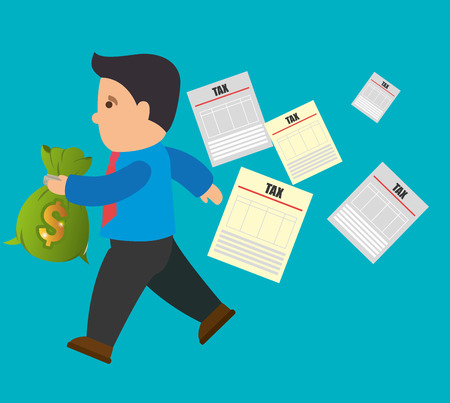 If you were to ask a group of small business owners what tax incentives they can enjoy, you are likely to get different answers, as there are quite a few incentives out there and they can be quite confusing. Some may be relevant to you, others may not. To know more about what the UK government offers at present and what schemes are useful to you, it is best to speak with a professional accounting firm for Small Businesses in London like us. At Tax Agility, we can help to advise on tax incentives.
If you were to ask a group of small business owners what tax incentives they can enjoy, you are likely to get different answers, as there are quite a few incentives out there and they can be quite confusing. Some may be relevant to you, others may not. To know more about what the UK government offers at present and what schemes are useful to you, it is best to speak with a professional accounting firm for Small Businesses in London like us. At Tax Agility, we can help to advise on tax incentives.
Popular tax incentives that are relevant to small businesses
- Annual Investment Allowance (AIA) – this is for businesses investing in qualifying investment for up to £200,000.
Example: You’re a sole trader not registered for VAT. You just bought a used van for £2,000 to transport goods. Your profit for the year is £20,000 and this means you can claim AIA on the cost of the van, so your tax will be on £18,000 (which is £20,000 - £2,000).
If you’re VAT registered, you can claim AIA on the cost of the asset less any VAT you can reclaim on the asset.
- Employment Allowance – introduced in 2014, this allows you to get up to £3,000 a year from the Class 1 National Insurance you have paid.
If you’re using XERO and already claimed the £3,000 Employment Allowance in the previous tax year, then XERO will automatically apply the annual balance of £3,000 in the current tax year.
- Research & Development Tax Relief – designed to encourage SMEs to invest in R&D by reducing your taxable profit and thereby decreasing your corporate tax.
As a small business owner, you can deduct an extra 130% of your qualifying costs from your yearly profit – in addition to the normal 100% deduction – this makes a total of 230% deduction. Talk to us if you’d like to understand more about Research & Development Tax Reliefs, from what counts as R&D to the different types of relief.
- Energy Technology List (ETL) – is a list of energy-efficient items which SEMs can purchase and benefit from single-year capital allowances.
Apart from these, there is also a range of Business Rates Reliefs – from Small Business Rate Relief to Relief for Pubs (in England with a rateable value of less than £100,000). Talk to us to find out more.
How important are Tax Incentives for a small business?
Tax Incentives are important for small businesses because they are an effective way to reduce your corporate tax bill, in addition to other ways like paying yourself tax efficiently.
To understand more and see how you and your small business can be tax efficient with tax reliefs, contact us today on 020 8108 0090 to arrange a complimentary, no obligation meeting.
To learn how the tax incentives for your small business, call your local London accountants Tax Agility on 020 8108 0090, or pop into one of our offices:
- Putney
- Wimbledon
- Hammersmith
- Fulham
- Richmond
- Central London (Cavendish Square)
As a contractor, why do I need an accountant?
 It’s easier than ever to become an independent contractor, and the number of workers taking the leap is only increasing: as of 2018, over 19% of the labour force in London is self-employed. By going at it yourself, you have greater freedom, a better work-life balance, and hopefully more money in your pocket. As an independent contractor, your rate could even double. However, being an expert in your field does not mean you are an expert at bookkeeping, and without detailed knowledge of things like taxes and legislation, you could easily make a costly mistake.
It’s easier than ever to become an independent contractor, and the number of workers taking the leap is only increasing: as of 2018, over 19% of the labour force in London is self-employed. By going at it yourself, you have greater freedom, a better work-life balance, and hopefully more money in your pocket. As an independent contractor, your rate could even double. However, being an expert in your field does not mean you are an expert at bookkeeping, and without detailed knowledge of things like taxes and legislation, you could easily make a costly mistake.
When it comes to choosing your accountant, you don’t just want to find someone who knows how to look after contractors; you also want a London accountant who is local to you. Your accountant will be looking after your day-to-day finances, after all, so they need to understand your individual needs.
As a contractor, why do you need an accountant?
- They know what they are doing – just like you know your stuff, they know theirs.
- As a contractor, different legislations like IR35 apply to you – do you know what they are?
- You want to spend your time building your business, not buried in paperwork.
- You could save a lot of money – you’re hiring a financial whiz to look after your interests!
Tax and compliance
Taxes are time-consuming. If you have a limited company, for example, you will need to stay on top of corporation tax, National Insurance Contributions, VAT, income tax, and potentially capital gains tax if you close your company. Expenses can also be a confusing aspect of taxes. If you are not aware of what expenses contractors can claim, you could be losing money – or mistakenly claiming things you shouldn’t. Contractor accountants are qualified in handling all of these things, and will always be on top of legislative acts that can affect your business.
Accounts and bookkeeping
Bookkeeping is the recording of daily financial transactions, such as tracking your payments and invoices. Making sure that your transactions are correct and up-to-date means your business will run smoother, but only if the information is accurate. If you consistently make mistakes or fail to keep on top of your bookkeeping, you could face cash flow problems, which can have serious consequences. In the long run, it is always better to let specialist contractor bookkeepers take care of your finances, to ensure your business is running as efficiently as possible – even if you’re just one person.
How Tax Agility can help you
London’s local accountants Tax Agility have years of experience looking after the accounts of contractors. Whether you are under an umbrella company or contracted through your own limited company, we know how to stay on top of the individual concerns you have. Every contractor is an individual, so we like to get to know your business and tailor our services to meet your needs. That’s why we are London’s local accountants, looking after London’s contractors.
At Tax Agility, we can complete your self-assessment tax return and submit it for you, tell you all about pension plans, ensure you minimise your tax liabilities, and help you make your business a sound investment.
For more advice on how we can help you with your financial needs, contact Tax Agility today on 020 8108 0090.
Are you aware of the tax rules for corporate gifts?

Buying gifts for clients or associates can be a great way to express gratitude for their business or their hard work. However, to avoid HRMC repercussions, it’s important to know how much you can claim on expenses and the types of gifts you can claim.
Tax Agility are a team of chartered accountants who can advise you on how to approach the tax rules to give you the best outcome for your business.
Business gifts to clients
HMRC allows you to claim a business gift worth up to £50 to any one person in any one tax year. However, these gifts must be business related (for example a business/work diary) and must not be food, alcoholic beverages or tobacco. Similarly, the gift must not be vouchers which can be exchanged for food, alcohol or tobacco. The gift must also contain an advertisement for your business, such as the company logo, in order for it to be recognised as a corporate gift.
Also, be aware that if the gift costs more that £50, HMRC will disallow the entire amount, not just the amount over the £50. This will mean that you will not be able to claim for the gift. Stick to these rules, though, and you’ll be able to claim your client business gift on expenses.
Gifts to staff
Gifts to staff members are taxable, but you can only spend up to £150 per employee on a company party. By HMRC’s standards, the party can be held at any time of the year, and businesses may split the party into multiple, separate events as long as the expense per employee does not exceed £150. Similar to purchasing gifts for clients, if you go over the maximum spend of £150 per employee, the entire amount will be made taxable.
Remember: the online tax return deadline is coming up!
If you have any concerns about the tax implications of corporate gift giving, get in touch with our small business accountants today. It’s never too early or too late to get the help you need to navigate the claims process. Tax Agility can complete and send off your tax returns to HMRC on your behalf. By doing all the complicated and time-consuming work for you, you can concentrate on more important things like growing your business.
We also offer a personal tax return service at our three main branches in Richmond, Putney and Wimbledon. With localised offices in these areas, residents can come in and receive tailored assistance from a tax professional.
Contact Tax Agility today
For more information on how we can help manage your taxes, call us today on 020 8108 0090.
Buy-to-let: Essential tax advice for new landlords
 The glory days of the buy-to-let market are supposedly over, but according to UK Finance, new investors have taken out over five thousand buy-to-let mortgages in February 2018. If you’re considering doing the same, find out what the main BTL taxes are that you’ll deal with.
The glory days of the buy-to-let market are supposedly over, but according to UK Finance, new investors have taken out over five thousand buy-to-let mortgages in February 2018. If you’re considering doing the same, find out what the main BTL taxes are that you’ll deal with.
Purchasing your property
You can choose to buy a property either as an individual, as a joint owner or via a limited company. The tax implications will be different for each scenario, so you should speak to an accountant specialising in landlords to find out which option is the best for you and decide on a course of action appropriate to your situation.
There is a different Stamp Duty Land Tax (SDLT) system in place if you are buying a property that you do not plan to live in, but will choose to let out instead. There are six band rates, with only properties under £40,000 not attracting any SDLT. Anything over this is taxed between 3 to 15 percent.
Renting your property
You’ll need to register with HMRC and send them annual tax returns when renting out your property, otherwise you may face a fine. Tax rules vary for residential properties, furnished holiday lettings and commercial properties, and your tax bracket will determine how much tax you are required to pay. In every case, you’ll need to have a bookkeeping system in place to track your income and expenses.
You’ll have to pay income tax on rental profits, but there are certain expenses you can deduct from the rental income. There is a vast range of allowable expenditures including general maintenance and repair, letting agent fees, insurance, and direct costs of renting a property, which could include phone calls, stationery and advertising. Visit HMRC’s rental income tax guide for more information.
Mortgage interest tax relief
For those who own property as individuals and have taken out a buy-to-let mortgage, it’s important to know that the government has introduced a cut to mortgage interest tax relief. While before April 2017, mortgage interest payments were deductible from a landlord’s taxable income before they calculated their tax bill, buy-to-let investors will now have to pay tax on their full rental income and then claim back a basic tax deduction.
London’s local accountants saving landlords time, money and headaches
Whether you’re a portfolio landlord or letting your first property, managing your finances as a landlord can get complicated pretty fast. Tax Agility’s has experienced accountants to help keep your finances organised and help with landlord tax returns. We pride ourselves on being specialist accountants for landlords, aiming to help you make sense of the various tax implications that affect you. Our services give you access to a team of experts with specialist resources, providing you with a cost-effective solution to your accounting woes.
Call us today on 020 8108 0090 and find out how we operate local to landlords in London.
We’re chartered accountants serving clients in Putney, Wimbledon, Fulham, Richmond, Hammersmith and from our Central London office in Cavendish Square.


